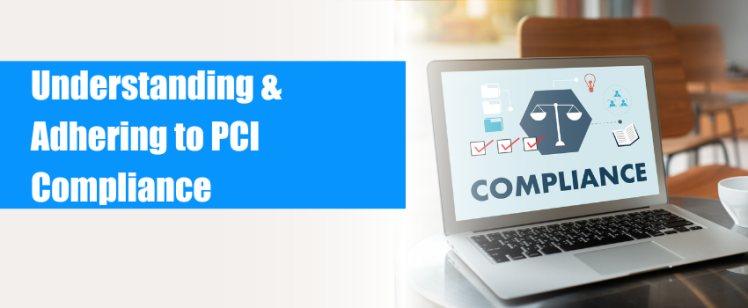-
Understanding & Adhering to PCI Compliance
Any business that processes, stores, or transmits credit card information is required to be PCI compliant. This applies to a wide range of organizations, from large corporations to small businesses. The PCI DSS (Payment Card Industry Data Security Standard) sets the security standards that these organizations must adhere to in order to protect cardholder data. The standard is designed to ensure that credit card information is handled securely and to prevent data breaches.
For small business owners, understanding and adhering to PCI compliance is crucial for several reasons:
- Legal and Regulatory Requirements: Many regions and industries have regulations in place that require businesses to safeguard customer payment data. Failing to meet these requirements can result in legal consequences, fines, and potential lawsuits. PCI compliance helps small businesses meet these obligations and avoid legal troubles.
- Customer Trust: Customers trust businesses with their sensitive payment card information. If a small business experiences a data breach or mishandles card data, it can lead to identity theft, financial losses, and damage to the business’s reputation. Being PCI compliant demonstrates a commitment to data security and can foster trust with customers, encouraging them to continue doing business with you.
- Data Security: Small businesses are often targeted by cybercriminals due to their potentially weaker security measures compared to larger corporations. Implementing PCI compliance helps in establishing security protocols, such as encryption, access controls, and regular security assessments, which significantly reduce the risk of data breaches and unauthorized access.
- Financial Consequences: A data breach can have severe financial repercussions for a small business. Beyond potential legal fees and fines, there are costs associated with investigating the breach, notifying affected customers, offering credit monitoring services, and recovering from the reputational damage. PCI compliance helps mitigate these financial risks.
- Partner and Vendor Relationships: Many payment processors, banks, and vendors require businesses to be PCI compliant before entering into partnerships or accepting credit card transactions. Failing to meet these requirements could limit business opportunities and partnerships.
PCI compliance is not just a technical requirement but a critical aspect of maintaining a secure, trustworthy, and successful small business. It safeguards customer data, helps meet legal obligations, builds customer trust, and minimizes the risk of financial and reputational damage from data breaches.
If you’re unsure whether your business needs to be PCI compliant or what level of compliance is required, it’s recommended to consult with your payment processor. Failing to comply with PCI standards can result in legal consequences, financial penalties, and reputational damage in the event of a data breach.
- (609) 759-5881
- Contact us
